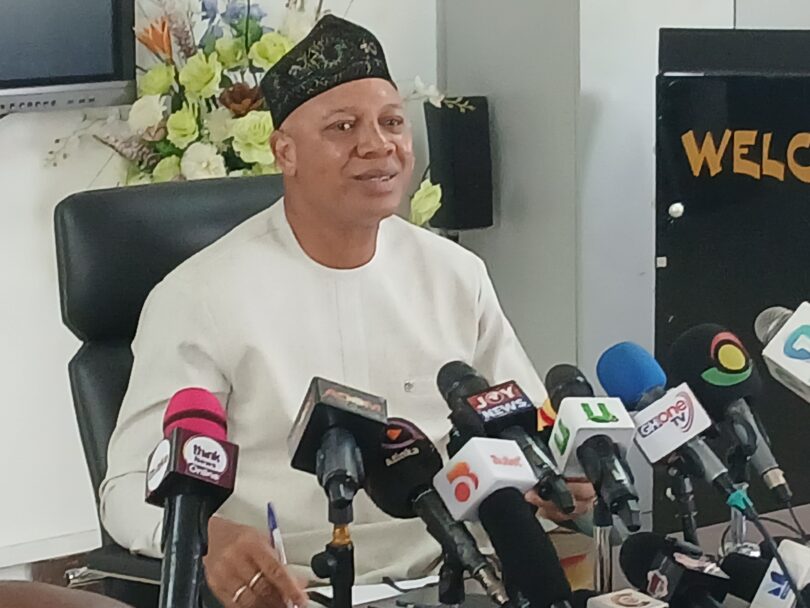Report By: Ishmael Barfi
The Ghana Water Limited (GWL) has highlighted the severe challenges facing the country’s water sector, citing the impact of illegal mining, climate change, and inadequate infrastructure.
According to GWL’s Managing Director, Mr. Adam Mutawakilu, the situation has resulted in frequent shutdowns, increased maintenance costs, and reduced water supply reliability.
Asdressing the press on Monday, 20th October,2025 in Accra, Mr. Adam Mutawukili reiterated that, illegal mining activities have led to significant environmental degradation, causing rivers to become heavily silted and affecting water treatment plants.
This activities he noted has resulted in increased costs for chemicals and energy, as well as reduced water supply capacity.
“Climate change and inadequate infrastructure have further exacerbated the challenges facing the water sector”, he added.
To address the crisis, the Managing Director of GWL proposes a 24-month catchment recovery plan focused on priority river bodies.
The plan he outlined includes riverbank stabilization, revegetation, targeted dredging, coordinated land use compliance and community engagement
“The proposed solution aims to restore abstraction capacity and reduce treatment challenges”, he said.
To achieve the above solutions, he called on corporate Ghana, development partners, and government agencies to partner GWL as well as support the catchment recovery plan.
“The company believes that collective action is necessary to address the water crisis and ensure a sustainable water supply for the country’s economic development”, he acknowledged.
Meanwhile he acknowledged the significant steps taken by the government to combat illegal mining and protect the water environment.
He further made reverence to the Minister of Lands and Natural Resources, Emmanuel Armah Kofi-Buah’s intensified regulatory enforcement through initiatives such as the Blue Water Guard surveillance operations.
Moving forward, Mr. Adam Mutawukili reiterated GWL committment to recovering lost capacity, reducing treatment losses and chemical dosage, lowering specific energy and unit costs, and stabilizing service to households, schools, health facilities, and businesses.
“The company believes that protecting the source of water is crucial to ensuring water security and that collective action is necessary to achieve this goal”, he noted.
Source: www.thenewindependentonline.com








